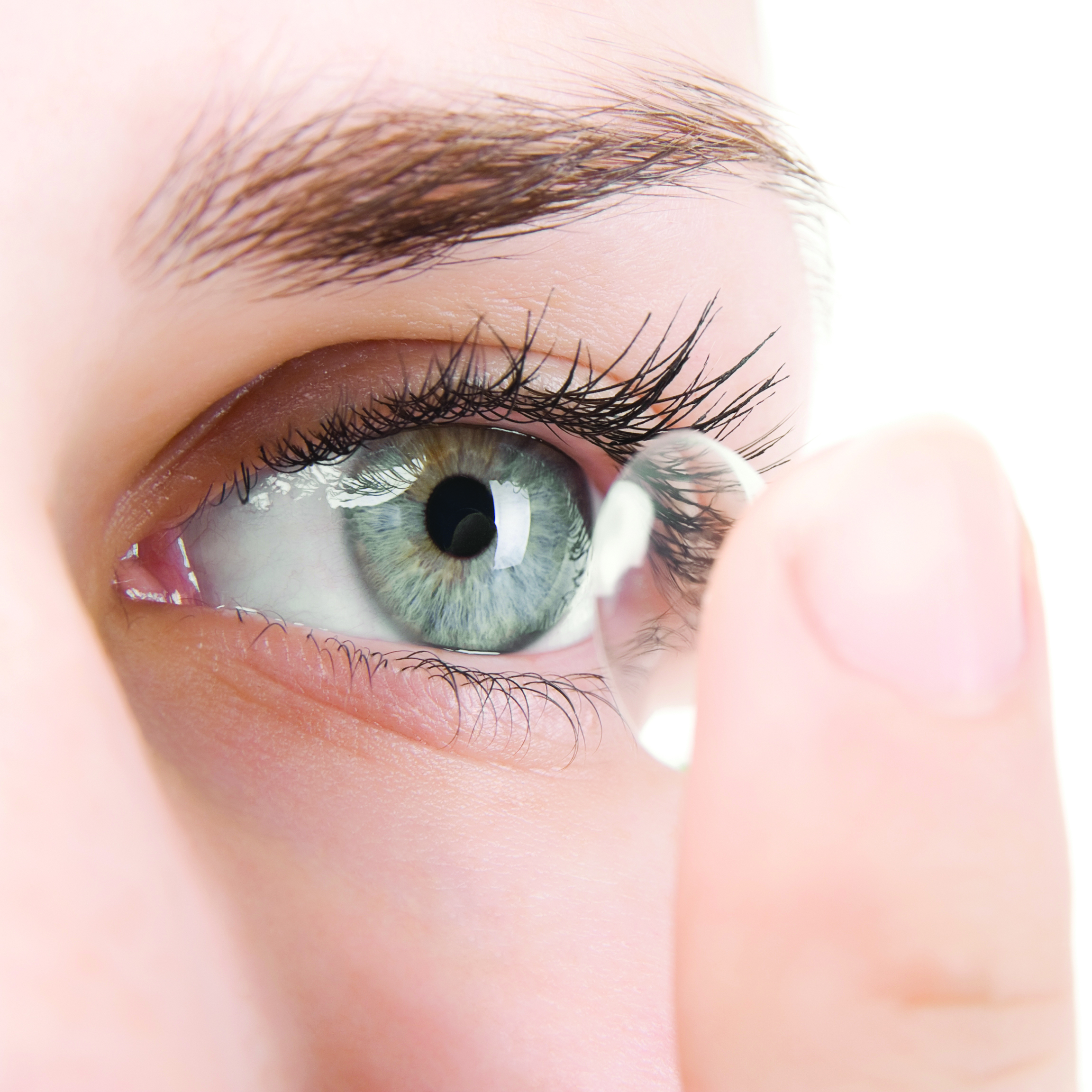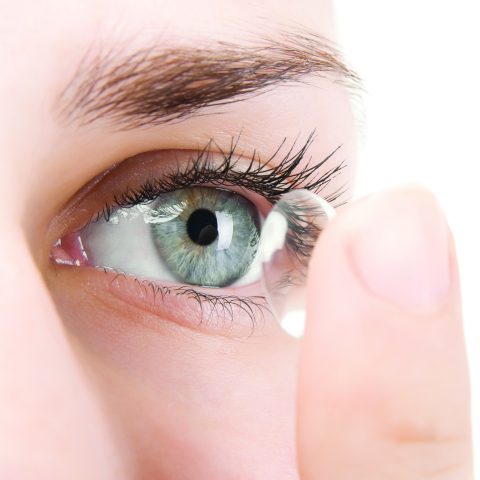Is my contact lens stuck in my eye? And other common questions…


![]() by Eleanor Swystun, Optometrist at Valli Opticians practices in Almondbury and Lockwood, Huddersfield
by Eleanor Swystun, Optometrist at Valli Opticians practices in Almondbury and Lockwood, Huddersfield
As a local optician I often get asked an array of questions about contact lenses. So here I answer some of the most commonly asked questions and also expel some contact lens myths!
Can my contact lens get stuck in my eye?
No. The front surface of the eye is called the cornea and the contact lens sits on this structure. The cornea protrudes forward from the rest of the eye and soft contact lenses mould to it. That is why the contact lens stays in the same place and doesn’t move around.
If you haven’t had contact lenses and are thinking about trying them, the optician will not allow you to take them home unless they are satisfied you are comfortable removing them and have done so numerous times.
In the unlikely event your contact lens moves and goes onto the conjunctiva, which covers the white part of your eye, or underneath your top eyelid, DO NOT PANIC! It will not get stuck behind your eye because there is a membrane, which means that can’t happen.
If your eyes are dry this can mean the lenses are harder to get out, if this is the case, the right thing to do is use artificial tears (lubricant eye drops). This will help lubricate your eye and the lens making it easier to remove.
If you are struggling to take your lens out, visit your optician who will remove it for you. They will teach you how to insert and remove the lenses again.
Why do I need an appointment before I buy contact lenses?
Contact lenses are a medical product that need to be prescribed to the individual who requests them, similar to a GP prescribing medication.
If you have never worn contact lenses before you must see an optician prior to purchasing them because there are lots of different types of contact lenses available. It is not a case of one size fits all – some lenses are more suitable for certain individuals.
Your optician will be able to advise what lenses are the most suitable for you by discussing your individual needs and requirements. If you want lenses just for sport, or you want the convenience of not having to clean your lenses every day, daily disposable lenses may be better. If you want to wear them full time, monthly lenses may be better. However, every person is different which is why it’s important to discuss your requirements with your optician first.
You can get contact lenses for astigmatism, which is where the shape of your cornea is said to be rugby ball shaped. You can also get multifocal contact lenses, which are suitable for people who wear varifocal or bifocal glasses.
During the appointment your optician will assess how well the lenses fit in your eyes and how they interact with the different surfaces they come into contact with, such as your cornea, tear film and eyelids.
After a successful fitting it is recommended that you have regular contact lens aftercare. This is to make sure your vision is still at the optimal level whilst wearing your lenses because even though you might not have realised it, your prescription may need fine-tuning.
It’s really important to follow your optician’s advice with regards to your contact lenses, not doing so could mean you are causing damage to your eyes.
Can I wear my contact lenses for swimming or showering?
No. Swimming and showering in contact lenses is incredibly dangerous. There is a bug in tap water and swimming pools that can cause a very nasty infection called Acanthamoeba Keratitis. Although this infection is rare, if you do accidently swim or shower in your lenses it is important to remove the lens immediately and throw it away. The bug called Acanthamoeba sticks to your contact lens.
The bug is resistant to contact lens solutions so even if you clean the lens it will not get rid of the bug or its cysts. Failure to do so, and to keep wearing the same contact lens, could lead to sight loss.
Why do I need a contact lens test if I’ve already had an eye test?
The prescription for spectacles and contact lenses is different. This is because the contact lens is in contact with your eye, while glasses sit away from your eye.
Sometimes the spectacle prescription might not have changed at your sight test, but your contact lens could have. It’s important to get both checked regularly so you can see optimally at all times, no matter which method of visual correction you are using.
The contact lens aftercare also examines how the lens is interacting with certain structures of the eye. This is why it is important to attend your aftercare appointments after wearing your lenses for a couple of hours, so the optometrists can see a true representation of the relationship between your eye and the contact lens.
What happens if I wear my contact lenses for too long?
Over wearing contact lenses during the day can stop oxygen from getting to the cornea, which can cause new blood vessels to grow on to the cornea. I recently had a case like this and we had to stop the patient wearing lenses and then had to refit them with silicone hydrogel lenses. These lenses allow a much higher amount of oxygen to get to the cornea.
There are lots of different lenses and each lens allows a different level of oxygen through to the cornea. The better the lens, the longer you can wear them for. I advise wearing contact lenses for a maximum of 12 hours a day, over wearing can also increase the risk of infection, which is already high when you are wearing a monthly lens. Wearing daily lenses reduces the chance of infection.
Can I wear contact lenses every day?
I would recommend wearing lenses for a maximum of six days a week. I think it’s important to take one day off to allow your eyes to rest. Essentially you are putting a foreign object in your eye and you do not want your eye to repel the lens by over wearing them.
As we get older, our eyes become less tolerant to lenses for many reasons but mainly because they become dry. Contact lens wear exacerbates this too, so taking a day off means you can carry on wearing your lenses for longer in the future.
Modern day living with screen use and air-conditioning also increases dry eye therefore affecting the performance of your contact lens, so it’s important to give your eyes a rest.
Can you wear coloured contact lenses every day?
I strongly advise against the purchase of coloured party lenses online or from costume shops. These lenses are not suitable for our eyes and can cause sight-threatening infections.
Optician prescribed coloured contact lenses can be worn daily, but they are generally poor at allowing oxygen to the cornea. I would recommend only using them for social use.
Is it bad to wear one contact lens?
Wearing one lens will not damage your eyes. Depending on your prescription you may only need to wear one lens anyway. But if your prescription requires a contact lens for both eyes then you should wear them both to achieve the best possible vision. Using just one lens when you have been prescribed two could put strain on both eyes causing dry eye, itching, soreness and headaches.
Can I sleep in contact lenses?
Ideally, no. Sleeping in contact lenses can stop the oxygen from getting to the cornea just like over wearing your lenses. But there are some instances where individuals need to sleep in them due to their occupation and lifestyle such as shift workers, pilots, nurses and doctors. If one of these individuals came to me and said they needed to sleep in their lenses, then I would fit them with a lens that is designed specifically for sleeping in. They would also need more frequent aftercare appointments with me as they are at a higher risk of infection.
Can you wear daily contacts for more than one day?
No. Daily contact lenses are designed to be thrown away at the end of the day. Wearing a daily lens for more than one day increases the risk of infection. Even if you only wear them for two hours during the day, you cannot save them for the next day.